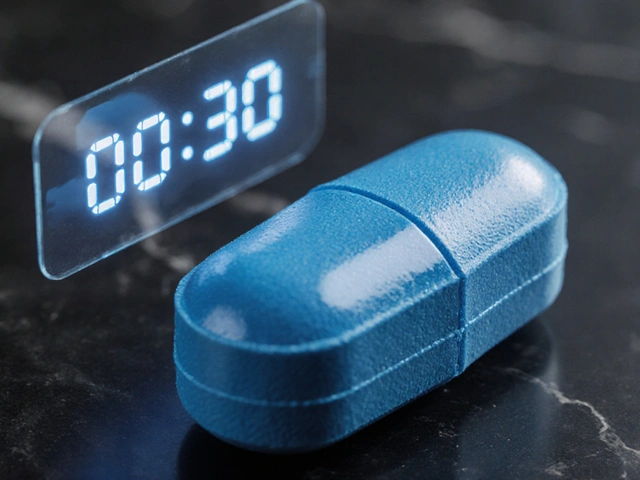Risperdal (risperidone) — What You Need to Know
Risperdal is the brand name for risperidone, an antipsychotic doctors use for schizophrenia, bipolar disorder, and irritability linked to autism. If you're taking it or considering it, you'll want clear facts: how it works, what side effects to watch for, and safe alternatives. This page gives practical guidance so you can have an informed talk with your prescriber.
How Risperidone Works and When It's Prescribed
Risperidone affects brain chemicals like dopamine and serotonin to reduce hallucinations, delusions, extreme mood swings, or severe irritability. Doctors commonly prescribe it for adults with schizophrenia, for manic or mixed episodes in bipolar I, and for autism-related aggression and irritability in children and teens. Dosing varies widely: clinicians start low and adjust based on symptom relief and side effects.
Want to know if it’s right for you? Ask your provider about your diagnosis, other medications you take, and any history of heart, liver, or metabolic issues. Those details shape the safest choice.
Common Side Effects, Risks, and What to Watch For
Short-term effects many people notice include drowsiness, increased appetite, weight gain, and dry mouth. Some users report shakiness or muscle stiffness (extrapyramidal symptoms). Risperidone can raise prolactin levels, which may cause irregular periods, breast changes, or sexual side effects.
There are a few higher-risk issues to discuss with your doctor: long-term use can affect metabolism (weight, blood sugar, cholesterol). Older adults with dementia-related psychosis face a higher risk of serious harm and death when given antipsychotics — this is a strong safety warning. Rare but serious risks include tardive dyskinesia (involuntary movements) and neuroleptic malignant syndrome (high fever, muscle rigidity).
If you notice sudden changes — breathing trouble, high fever, stiff muscles, or new uncontrollable movements — seek medical help right away. For routine care, ask your prescriber for baseline weight, blood sugar, and lipid tests and periodic follow-ups.
Drug interactions matter. Combining risperidone with other sedatives, strong CYP2D6 or CYP3A4 inhibitors, or certain heart medicines can change its effect. Always list all prescriptions, OTC drugs, and supplements you take.
If buying meds online, always use a licensed pharmacy and never skip a prescription. Unregulated sites can sell counterfeit or unsafe products.
Looking for alternatives? Your doctor might suggest other atypical antipsychotics like aripiprazole, quetiapine, or olanzapine, or nonpharmacologic options such as psychotherapy and structured support programs. Each option has its own side-effect profile, so choosing the right one means balancing benefits and risks for your situation.
Have questions about dosing, switching meds, or side-effect management? Reach out to your prescriber or a pharmacist, and use this site’s articles on medication safety and alternatives to learn more before your appointment.
Risperdal, also known as risperidone, is a popular antipsychotic used to treat conditions like schizophrenia and bipolar disorder. This article breaks down what Risperdal does, who might be prescribed it, possible side effects, and real tips for people starting or considering this medication. You'll also learn what to expect when taking Risperdal, how it affects your brain, and why careful monitoring really matters. We're talking straight facts, not sugarcoating.
Read more






